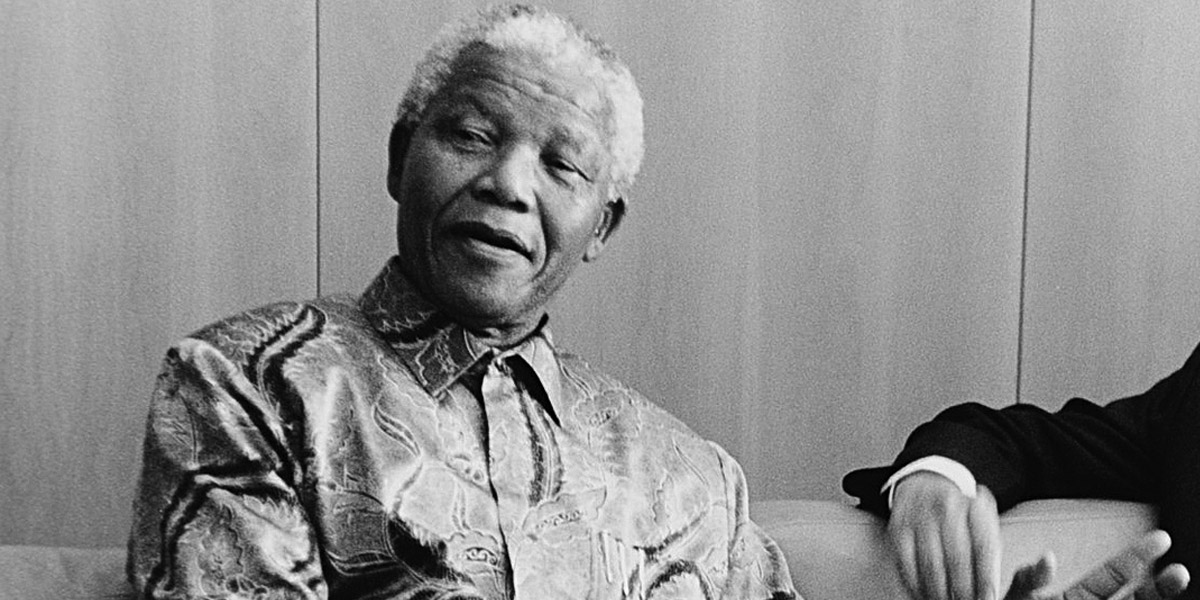After Mandela: Labour must not shy away from internationalism
They came in their thousands, defying the African summer rain, to celebrate, remember and honour the man who had led the struggle for all South African’s freedom. But amongst the tributes from world leaders, there was one speaker, regarded as...
They came in their thousands, defying the African summer rain, to celebrate, remember and honour the man who had led the struggle for all South African’s freedom. But amongst the tributes from world leaders, there was one speaker, regarded as a ‘son of Africa’ and the most powerful leader in the world, who captured the mood and man who he described as ‘giant of history’ who would “emerge as the last great liberator of the 20th century.”
In his address President Obama said, “His struggle was your struggle. His triumph was your triumph. Your dignity and hope found expression in his life. Your freedom and your democracy was his cherished legacy.”
Mandela was an emblem of freedom, reconciliation, justice and hope, but he was also a rebel, freedom fighter and political leader. He was instinctively a politician who was able to bring with his political calculation a level of integrity, but his humanity always shone through that inspired a new generation to act on behalf of justice and peace and uphold a belief that the world really could be changed.
Gordon Brown, in his tribute in parliament on Monday said that Mandela himself had written that he had climbed one mountain to end apartheid, but in his later life he wanted to climb another great mountain to rid the world of poverty, and especially child poverty. Mandela often spoke about the oppressed; he spoke for the poor and marginalised in South Africa, but believed in the liberation of all humanity.
In 2005 at the launch of the Make Poverty History campaign in London, Mandela said: “Like slavery and apartheid, poverty is not natural, it is man-made and can be eradicated and overcome by the actions of human beings.” Mandela knew full well that the political liberation of South Africa’s people was just the beginning, and until poverty and inequality was eradicated and people’s human dignity was fully restored, the full fruits of freedom could not be fully realised.
Coming out of retirement to champion the cause of global poverty must be seen as one of Mandela’s enduring legacies. Just as the Labour party stood in solidarity with the people of South Africa in the struggle against apartheid, so we should now as a party and a movement stand up for global justice, equality and peace. In his tribute in Soweto on Tuesday, Obama’s challenge to the world was this: “There are too many of us who happily embrace Madiba’s legacy of racial reconciliation, but passionately resist even modest reforms that would challenge chronic poverty and growing inequality.”
The world is a very different place from when Mandela came out of retirement to champion these causes in 2005. We have witnessed the world shifting to a more powerful G20 and multipolar global framework in the last decade. With the emerging powers such as India, China, Brazil and South Africa ready to assume a more prominent and active role at the global table, how does a future Labour government stand up for these values globally and move forward against a political culture that is increasingly isolationist in its rhetoric?
In response, shadow foreign secretary, Douglas Alexander has made the case for a ‘progressive internationalism.’ These words will sit easily with many on the left, but what does this mean in reality? Ed Milliband’s idea of ‘responsible capitalism’, for example, can begin to shape this progressive agenda but it can only be achieved on a global scale. After the global financial crisis we need to broaden the way the global system is governed, focus on cooperation between countries and develop a greater understanding of different ideologies and economic and social development paradigms of the world.
The British public is critical of Britain’s overseas commitments, so a future Labour government committing to end poverty and inequality may not gain much political capital. Labour should, however, be ready to take strong and sometimes controversial positions on the grounds of principles that reflect the party’s tradition.
We need a new development agenda to challenge a world of poverty and inequality. The argument that Britain is a force for good in the world should be a central part of one nation Labour. As the nature of globalisation alters, we have a moral duty to promote the development and economic growth of the poorest nations in the world, through an active process of multilateralism and interdependence.
We must pick up the batton and pledge ourselves to continue Mandela’s legacy, for he was the man that taught is that no injustice can last forever. Mandela’s words to the assembled crowd in Trafalgar Square in London in 2005 ring true today as they did then: “Sometimes it falls upon a generation to be great. You can be that great generation. Let your greatness blossom. Of course the task will not be easy. But not to do this would be a crime against humanity, against which I ask all humanity now to rise up”.
Joe Walker is vice chair (policy) of the Labour Campaign for International Development. He tweets at @JoeWalkerUK
